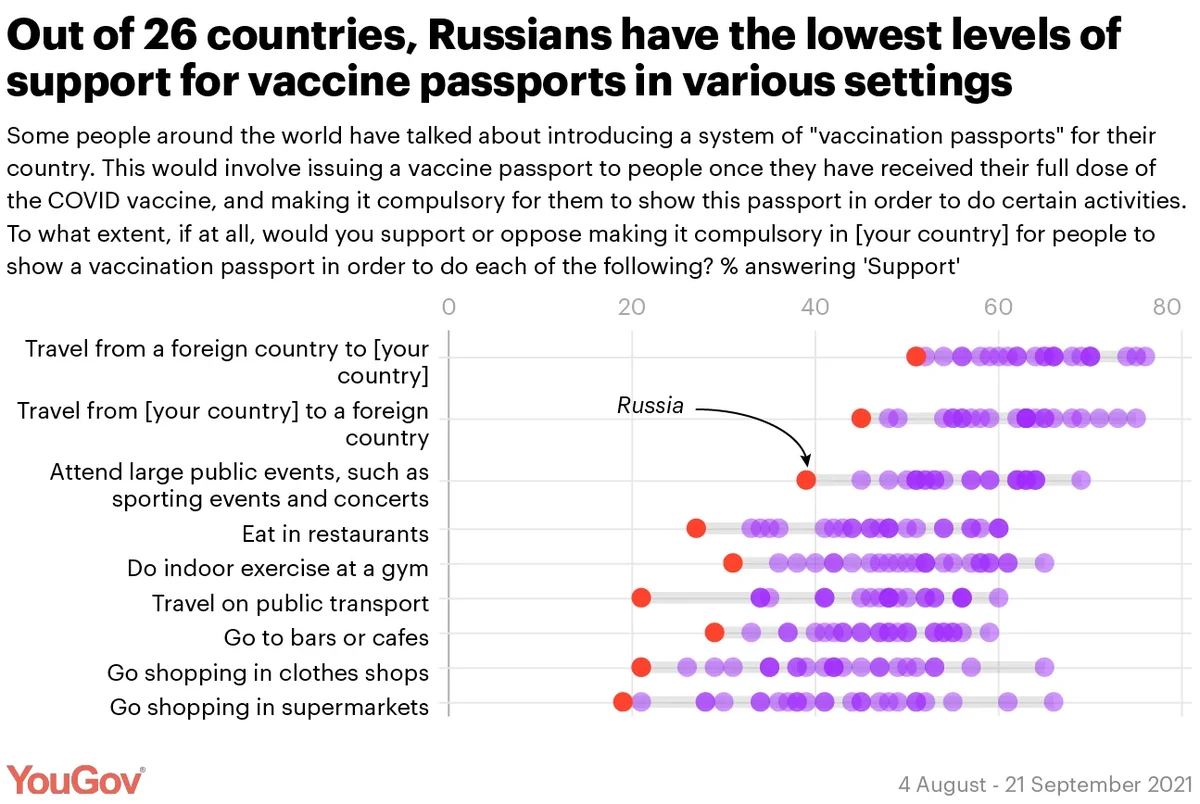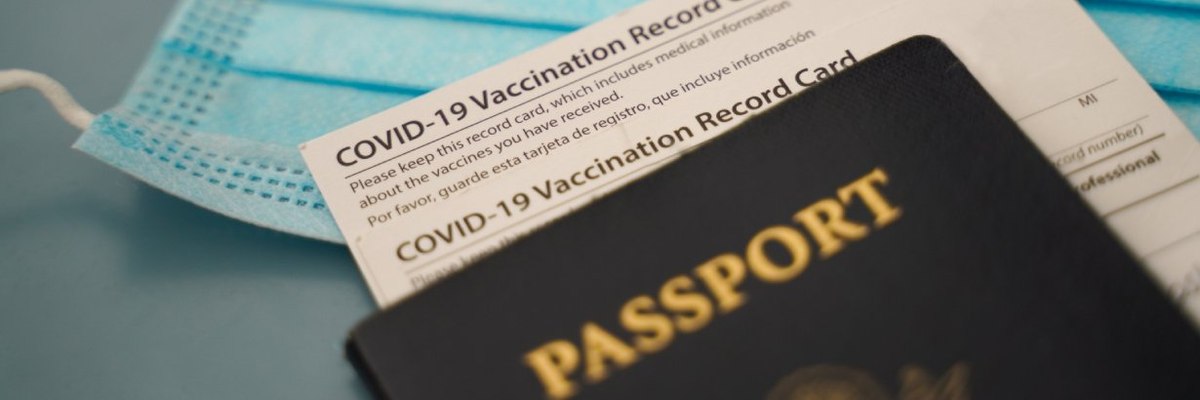For the last two years, countries across the world have been under scrutiny for their Covid-19 response. At the start of the pandemic, emphasis was placed on locking down, restricting travel and isolating infected people – but now, with a widely-available vaccine, many countries are now adopting vaccine passports, issued to citizens who are fully vaccinated and then required for people to do certain activities, as a way to open up and ‘live with the virus’.
Research by the YouGov-Cambridge Globalism Project, carried out last summer (4 August – 21 September 2021) and covering more than 28,000 people across 26 countries, reveals the varied levels of support for vaccine passports in various settings across the world.
Which countries have the highest levels of support for vaccine passports?
Out of 26 countries surveyed for the project, Australia had the highest average support for vaccine passports across nine scenarios where vaccine passports might be required. Australian support for making it compulsory to show a vaccination certificate ranged from half (50%) who would support vaccine passports for clothes shops to 75% who support vaccine passports for travelling to or from Australia. Australia is only just about to open up its borders to fully vaccinated travellers after implementing strict travel restrictions for two years of Covid-19, including at the time of this survey.
Saudi Arabia, Turkey, Mexico and Brazil all also had high average support for vaccine passports across the nine settings.
At the other end of the scale, Poland, Hungary and Russia all had less than 40% average support for vaccine passports in the nine settings we asked about.
Which settings should require a compulsory vaccine passport?
In almost all countries, travel (both to and from the country surveyed) was the area which attracted the greatest amount of support for introducing a compulsory vaccine passport, with an average of 63% (into the country) and 61% (out of the country) across the 26 countries in our survey.
Post-lockdowns, regulations for international travel have tended to be stricter than domestic ones, with many countries requiring either proof of vaccination or a negative test, or both. Support for vaccine passports for travel into the country was highest in Kenya (76%), and for travel out of the country, Australians had the highest support (75%).
In no country did fewer than half of their citizens support requiring proof of vaccination for travel into the country, although for travel out of the country, Russia stands out as the only country surveyed which had significantly under half supporting a vaccine passport, at 45%.
In fact, Russia had the lowest levels of support across all settings we asked about, ranging from just 19% of Russians who would support introducing a vaccine passport to shop in supermarkets to 51% who support compulsory vaccine certification for travel into the country. Russia opened its borders to travellers on 4 September 2021, while fieldwork for this survey was being carried out, requiring a negative PCR test to enter, but not proof of vaccination.

In terms of other places where vaccine passports could conceivably be introduced (or are already being used in some countries), there is high average support (56%) across the countries surveyed for requiring people to show a vaccination passport to attend large public events, like sporting matches or concerts. The UK introduced this policy in England in December last year, requiring attendees of large events to show their Covid pass in order to enter, but lifted it soon afterwards.
The introduction of vaccine passports for doing indoor exercise at a gym (50% average support across 26 countries), eating in restaurants (47% average), going to bars or cafes (47% average) or travelling on public transport (46% average) had middling support, while shopping in supermarkets and in clothes shops were at the bottom of our list, both with 41% average support.
See full results here









